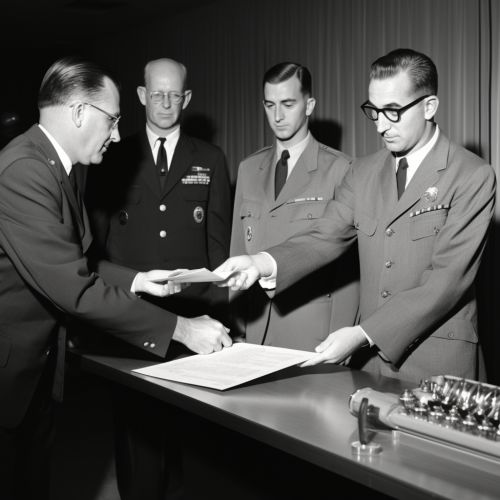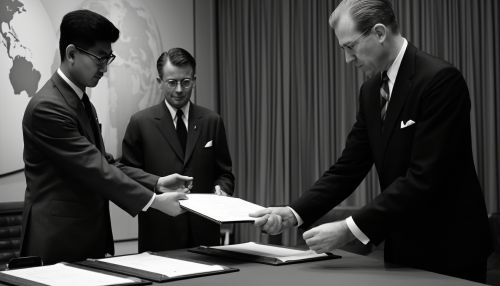Treaty on the Non-Proliferation of Nuclear Weapons
Overview
The Treaty on the Non-Proliferation of Nuclear Weapons (NPT) is a landmark international treaty whose objective is to prevent the spread of nuclear weapons and weapons technology, to promote cooperation in the peaceful uses of nuclear energy, and to further the goal of achieving nuclear disarmament and general and complete disarmament.


History
The NPT came into force in 1970. It was designed to limit the spread of nuclear weapons, including security from nuclear threats, and the right to peacefully use nuclear technology. The treaty was extended indefinitely in 1995, and is reviewed every five years in meetings called Review Conferences of the Parties to the Treaty of Non-Proliferation of Nuclear Weapons.
Provisions
The NPT is often seen to be based on a central bargain: "the NPT non-nuclear-weapon states agree never to acquire nuclear weapons and the NPT nuclear-weapon states in exchange agree to share the benefits of peaceful nuclear technology and to pursue nuclear disarmament aimed at the ultimate elimination of their nuclear arsenals".
Non-proliferation
The treaty recognizes five states as nuclear-weapon states: the United States, Russia, the United Kingdom, France, and China (also the five permanent members of the United Nations Security Council). Four other states are known or believed to possess nuclear weapons: India, Pakistan and North Korea have openly tested and declared that they possess nuclear weapons, while Israel has had a policy of opacity regarding its own nuclear weapons program.
Disarmament
The NPT is often seen to be based on a central bargain: "the NPT non-nuclear-weapon states agree never to acquire nuclear weapons and the NPT nuclear-weapon states in exchange agree to share the benefits of peaceful nuclear technology and to pursue nuclear disarmament aimed at the ultimate elimination of their nuclear arsenals".
Peaceful use of nuclear energy
The NPT, beyond the principle of disarmament, has also established the principle that the benefits of peaceful nuclear technology should be available for all, but that the proliferation of nuclear weapons should be avoided.
Criticisms and controversies
Despite its wide acceptance, the effectiveness and fairness of the NPT have often been questioned. Some critics argue that the NPT creates a club of "nuclear haves" and a larger group of "nuclear have-nots" by restricting the legal possession of nuclear weapons to those states that tested them before 1967, but the treaty never explains on what ethical grounds such a distinction is valid.
